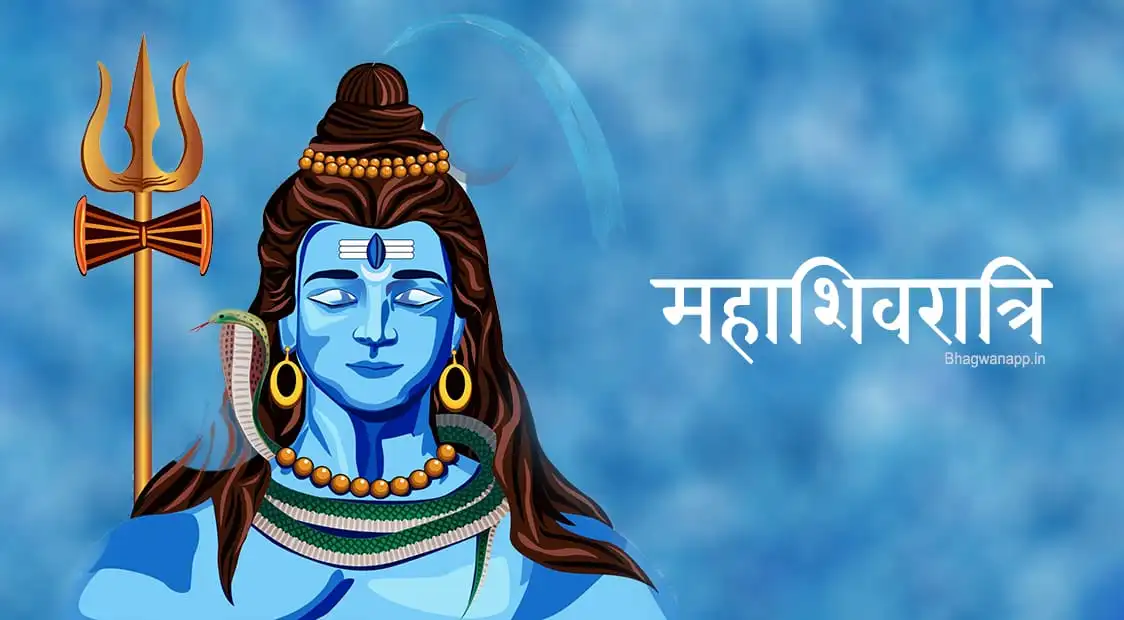
देवदेव महादेव नीलकण्ठ नमोस्तु ते। कर्तुमिच्छाम्यहं देव शिवरात्रिव्रतं तव।। तव प्रसादाद्देवेश निर्विघ्नेन भवेदिति। कामाद्या: शत्रवो मां वै पीडां कुर्वन्तु नैव हि।।
महाशिवरात्रि के अवसर पर लाखों भक्त शिव मंदिरों में जाते हैं और शिवलिंग रुद्राभिषेक करते हैं। बहुत से लोग शिवरात्रि का व्रत रखते हैं और रात्रि जागरण भी करते हैं।
इस दिन भगवान शिव की पूजा करने से महादेव शीघ्र प्रसन्न होते हैं। उनकी कृपा से स्वस्थ शरीर, सुख-समृद्धि की प्राप्ति होती है। जिनकी शादी नहीं हो रही है या किसी कारणवश इसमें देरी हो रही है तो महाशिवरात्रि के दिन शिवलिंग की पूजा करने से उनकी मनोकामनाएं पूरी होती हैं। शिव की कृपा से भी जीवन में सुख-शांति की प्राप्ति होती है।
इस व्रत में चारों पहर में पूजन किया जाता है। प्रत्येक पहर की पूजा में ऊं नम: शिवाय का जप करते रहना चाहिए। अगर शिव मंदिर में यह जप करना संभव न हो, तो घर की पूर्व दिशा में, किसी शान्त स्थान पर जाकर इस मंत्र का जप किया जा सकता है। चारों पहर में किए जाने वाले इन मंत्रों के जप से विशेष पुण्य प्राप्त होता है। इसके अतिरिक्त उपवास की अवधि में रुद्राभिषेक करने से भगवान शंकर अत्यन्त प्रसन्न होते हैं।
महाशिवरात्रि के व्रत में नमक का सेवन नहीं किया जाता है। यदि फिर भी कोई बीमार है या फिर गर्भवती महिला हैं या बुजुर्ग हैं तो वह व्रत में फलाहारी नमक का प्रयोग कर सकते हैं।व्रत करने वाले व्यक्ति को दिन में निद्रा नहीं लेनी चाहिए और रात्रि में भी शिवजी का भजन करके जागरण करना चाहिए। इस दिन पति और पत्नी को साथ मिलकर शिवजी के भजन करने चाहिए। ऐसा करने से उनके संबंधों में मधुरता बनी रहती है।माना जाता है कि शिवजी को खट्टे फलों का भोग नहीं लगाना चाहिए और सफेद मिष्ठान का प्रयोग करना चाहिए।
प्राचीन समय में एक नृशंस बहेलिया था जो नित्य-प्रति अनगिनत निरपराध जीवों को मारकर अपने परिवार का पालन-पोषण करता था। एक बार पूरे जंगल में विचरण करने पर भी जब उसे कोई शिकार न मिला तो वह भूख से व्याकुल हुआ एक तालाब के किनारे गया। उसी स्थान पर एक बेल के वृक्ष के नीचे शिवलिंग स्थापित था। बहेलिया ने उसी वृक्ष की शाखा पर चढ़कर अपनी आवास-स्थली बनाने के लिए बेलपत्रों को तोड़ते हुए शिवलिंग को ढक दिया। दिनभर की भूख से व्याकुल उस बहेलिए का एक प्रकार से शिवरात्रि व्रत पूरा हो गया।
कुछ रात बीत जाने पर एक गर्भवती हिरणी उधर कुलाँचें भरती आई। व्याध उसे मारने को तैयार हो गया। झिझकती, भयाकुल हिरणी दीन वाणी में बोली- 'हे व्याध! मैं अभी गर्भवती हूँ। प्रसव बेला भी समीप है। इसलिए इस समय मुझे मत मारो। मैं प्रजनन क्रिया के बाद शीघ्र ही आ जाऊँगी।' बहेलिया उसकी बातों को मान गया। थोड़ी रात और व्यतीत होने पर एक दूसरी मृगी उस स्थान पर आई।
बहेलिया के निशाना साधते ही उस मृगी ने भी निवेदन किया- 'मैं अभी ऋतुक्रिया से निवृत्त सकामा हूँ। इसलिए मुझे पति समागम करने दीजिए, मारिए नहीं। मैं मिलने के पश्चात् स्वयं तुम्हारे पास आ जाऊँगी।' बहलिए ने उसकी बात को भी स्वीकार कर लिया। रात्रि की तृतीय बेला में एक तीसरी हिरणी छोटे-छोटे छौनों को लिए उसी जलाशय में पानी पीने आई। बहेलिए ने उसको भी देखकर धनुष-बाण उठा लिया। तब वह हिरणी कातर स्वर में बोली- 'हे व्याध! मैं इन छोनों को हिरण के संरक्षण में कर आऊँ तो तब तुम मुझे मार डालना।' बहेलिए ने दीन वचनों से प्रभावित होकर इसे भी छोड़ दिया।
प्रातः काल के समय एक माँसल बलवान हिरण उसी सरोवर पर आया। बहेलिये ने पुन: अपने स्वभावानुसार शरसंधान करना चाहा। यह क्रिया देखते ही हिरण व्याध से प्रार्थना करने लगा- 'हे व्याधराज ! मुझसे पूर्व आने वाली तीन हिरणियों को तुमने मारा हो तो मुझे भी मारिए अन्यथा अगर वे तुम्हारे द्वारा छोड़ दी गईं हों तो मुझे मिलकर आने पर मारना। मैं भी उनका सहचर हूँ।' हिरण की करुणामग्री वाणी सुनकर बहेलिया ने रात भर की बीती बात कह सुनाई तथा उसे भी छोड़ दिया। दिन भर उपवास, पूरी रात जागरण तथा शिव प्रतिमा पर बेलपत्र गिरने (चढ़ाने) के कारण बहेलिया में आंतरिक शुचिता आ गई। उसका मन निर्दयता से कोमलता में ऐसा बदल गया कि हिरण परिवार के लौटने पर भी न मारने का निश्चय कर लिया।
भगवान शंकर के प्रभाव से उसका मन इतना पवित्र तथा सरल हो गया कि वह पूर्ण अहिंसावादी बन गया। उधर हिरणियों से मिलने के पश्चात् हिरण ने बहेलिया के पास आकर अपनी सत्यवादिता का परिचय दिया। उनके सत्याग्रह से प्रभावित होकर व्याध 'अहिंसा परमोधर्मः' का पुजारी हो गया। उसकी आँखों में आँसू छलक आए तथा पूर्वकृत कर्मों पर पश्चाताप करने लगा। इस पर स्वर्गलोक से देवताओं ने व्याध की सराहना की तथा भगवान शंकर ने दो पुष्पक विमान भेजकर बहेलिया तथा मृग परिवार को शिवलोक का अधिकारी बनाया।